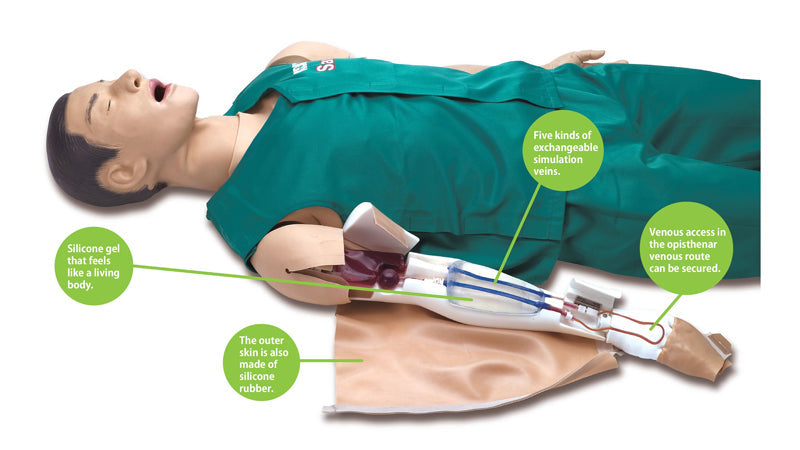
Training Model for Securing Venous Tract
Emergency medical technicians need to secure intravenous (Ⅳ) lines when administering medicine. This model is used for thorough training in how to establish an Ⅳ line. It enables excellent training focusing on securing Ⅳ lines that includes everything from a basic Ⅳ line to specialized training for narrow or deep veins, for example. It can be installed onto the Save Man Advance or Advanced Life Support Simulator.
Features
- Can be used to practice securing an IV line in the median antebrachial vein or the opisthenar
- The simulated blood vessels being punvtured completely through.
- There are five kinds of disposable, interchangeable simulation blood vessels for setting various scenarios.
- Silicone rubber is used in the main parts such as the skins for an appearance and sensation that is similar to that of the human body, enabling realistic practice.
- A unique structure simulated venous pressure to enable confirmation of venous blood backfolow.
* Use a 20G of thinner hypodermic needle.
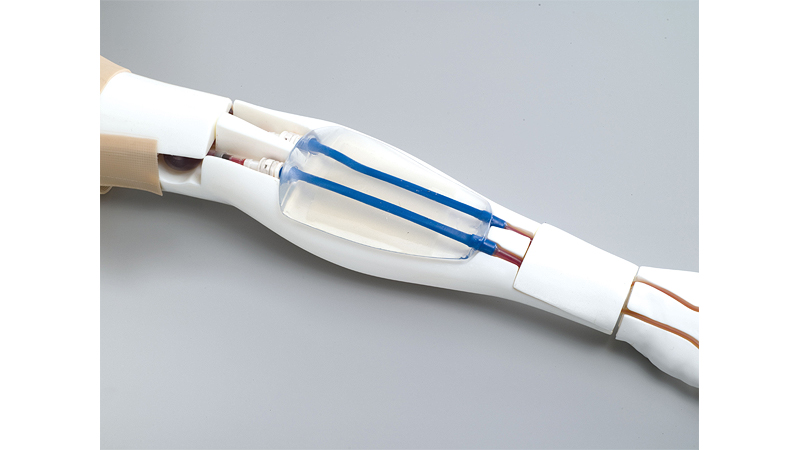
Possible to install five kinds of simulation veins.
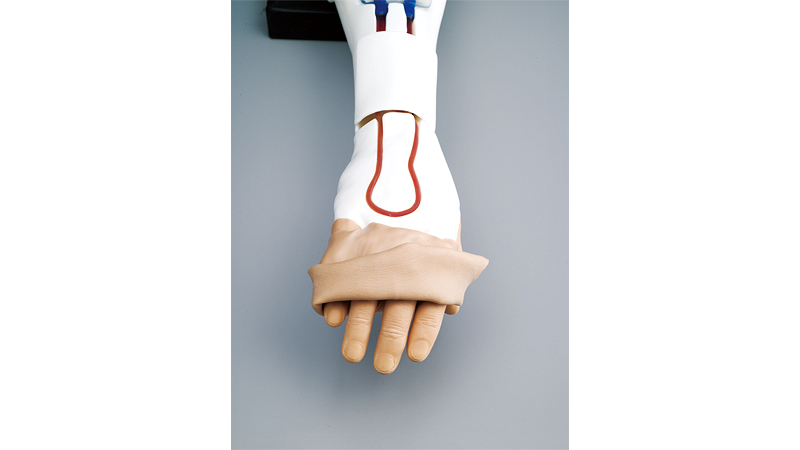
Possible to secure opisthenar venous tract
Five kinds of Simulation Veins
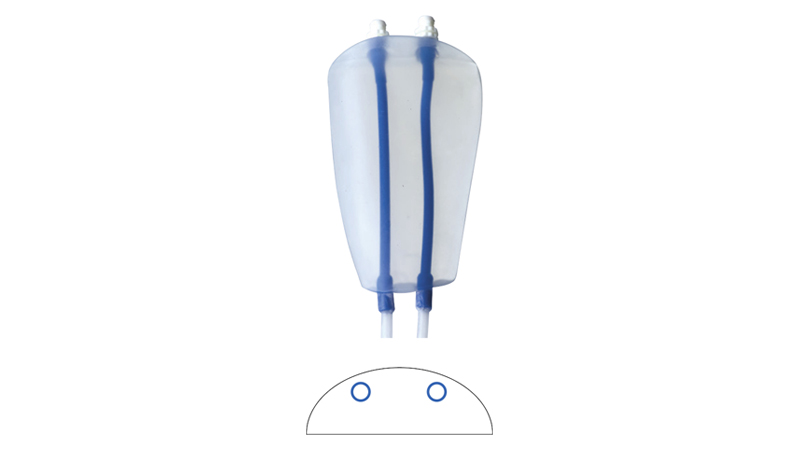
Standard type
This is a standard blood vessel. Please confirm the thickness of the blood vessel, the running, and the feel. For the purpose of practicing CPA, there is less vascular wall resistance than there is for ordinary models.
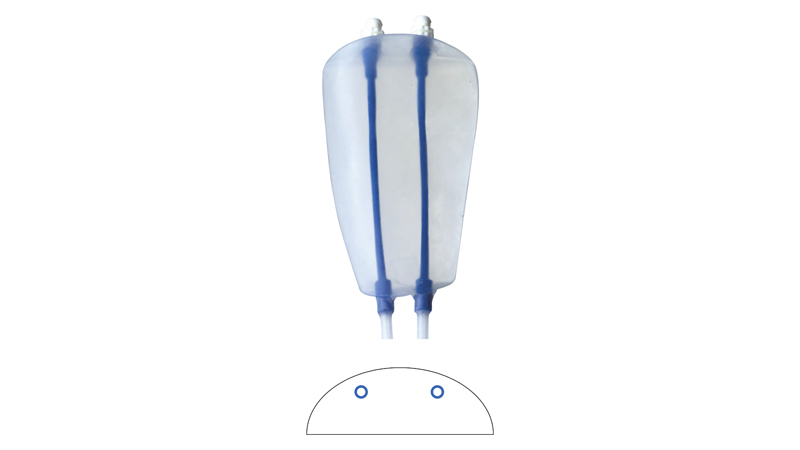
Narrow type
The blood vessel is hard to find and secure.
* For example, a blood vessel of a young woman.
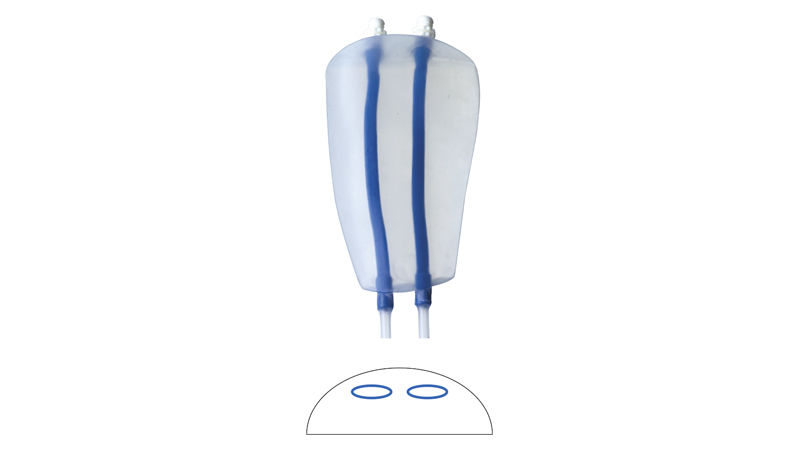
Flat type
This has the same thickness as standard vessels, but it is flattened so it is easy to pierce with a needle. A vessel practicing CPA.
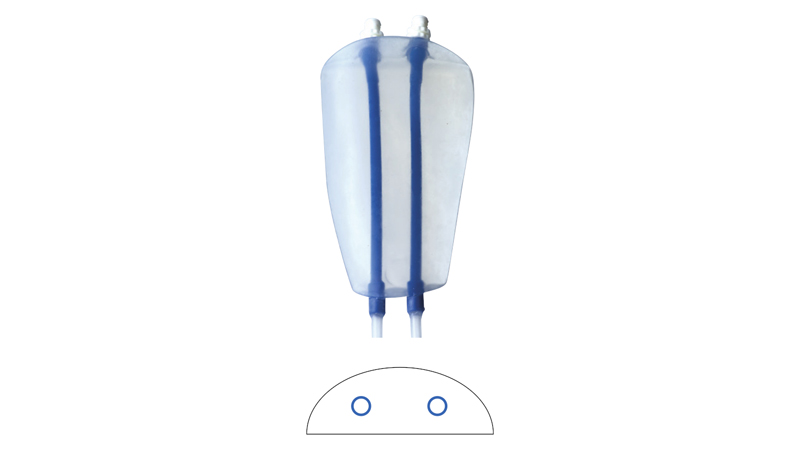
Deep type
The wall of fat is thick.
* For example, a blood vessel of an obese man.
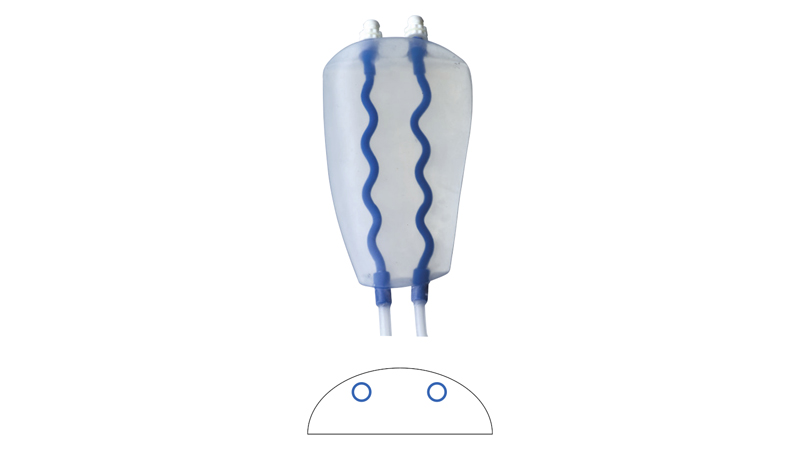
Meandering type
Tension is applied, the blood vessel is stretched and can then be punctured.
* For example, a blood vessel of an elderly person.
Components
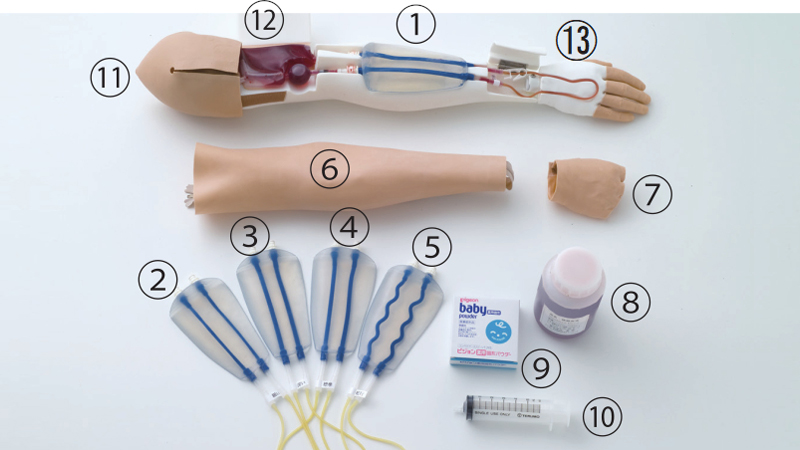 |
| ① Vein part (standard type) |
|---|
| ② Vein part (narrow type) |
| ③ Vein part (flat type) |
| ④ Vein part (deep type) |
| ⑤ Vein part (meadering type) |
| ⑥ Arm skin |
| ⑦ Opisthenar |
| ⑧ Simulated blood (500ml) |
| ⑨ Baby powder |
| ⑩ Syringe |
| ⑪ Upper arm skin for main body |
| ⑫ Blood bag |
| ⑬ Opisthenar venous tube (10pcs / set) |
